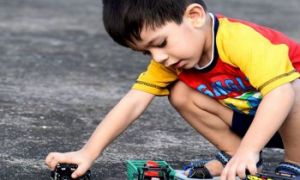

Our early childhood sector is facing a troubling paradox. On one hand, thousands of students are enrolling in Certificate III programs, eager to join the workforce. On the other hand, services are reporting that these trainees arrive on placement underprepared, leaving educators overwhelmed and children underserved. This mismatch between training and practice is not just frustrating—it’s unsustainable.
Placements are designed to be safe, structured opportunities for students to learn, observe, and gradually build confidence in their professional practice. They are not employment contracts, nor should they be used to fill staffing gaps. When boundaries blur, students can feel pressured, undervalued, and even exploited. Understanding the difference between learning and labour is essential for both centres and students.
Macquarie University’s Bachelor of Education (Early Childhood)—StepAhead Program is designed for diploma-qualified educators with at least two years of post-diploma work experience. It provides a pathway to upgrade existing qualifications into a full bachelor’s degree, recognising prior learning and professional practice.
Under ACECQA’s National Quality Framework, educators are deemed “qualified” if they hold a Certificate III, Diploma, or approved university degree. But qualification does not equal competence. The current system allows individuals with unrelated undergraduate degrees to complete a one-year postgraduate course and enter classrooms, often with minimal practical experience or emotional readiness. The result? A workforce flooded with technically qualified but emotionally disconnected practitioners some of whom openly admit they “don’t like kids” and entered the profession for visa access or job security.
The Diploma of Early Childhood Education and Care gives you an opportunity to explore more career options. From creative resource design to inclusion support, leadership, or advocacy, it offers a rich landscape of opportunities beyond the traditional role of working as an educator in an early learning setting. The following article provides examples of different career pathways for your Diploma qualification.
The Australian Skills Quality Authority, in collaboration with HumanAbility and sector partners, has released updated guidance to strengthen how early childhood education and care students are assessed during workplace placements. This article unpacks the key elements of the guidance, highlights unacceptable practices, and offers best-practice recommendations for registered training organisations and ECEC services.
In New South Wales, a disturbing trend is emerging: early childhood education students are paying thousands of dollars for contract cheating services—outsourcing assignments to third parties, often via encrypted platforms like WhatsApp. Some are reportedly using these fraudulent qualifications to fast-track visa approvals and bypass the very training meant to prepare them to support, nurture, and educate our youngest citizens.
When a qualification is cancelled by the Australian Skills Quality Authority (ASQA), it sets off a chain of consequences for educators, employers, and the broader vocational education sector. Here's a breakdown of what happens. The following article provides information on What Triggers Cancellation?, Students Working With Cancelled Qualification. Notification Process, Consequences for Students, FAQs for Cancelled VET Qualifications and more.
A: The short answer: Yes, in most cases. While ACECQA requires practicums as part of qualifications, the rule that some hours must be completed outside the current workplace is usually enforced by training providers (TAFEs, RTOs, universities). This ensures diverse experiences, exposure to different service types, and quality assurance across the sector.
Practicums are a vital part of ECEC qualifications in Australia. They ensure that students gain supervised, hands‑on experience in real settings, bridging theory with practice.
Here are some effective study planning techniques and tools to support students in staying organized and productive. This article provides information on Study Planning Techniques, Study Planning Tools, How To Manage Multiple Modules In A Cluster, Week By Week Study Plan, Daily Study Schedule Example, Weekly Study Breakdown Example, Study Tips While At Work and more.
 As an Educator in Australia, your pay rate falls under the Children’s Services Award 2010. This award states the minimum amount that an employer can… Read More
As an Educator in Australia, your pay rate falls under the Children’s Services Award 2010. This award states the minimum amount that an employer can… Read More
 When working as a qualified Early Childhood Teacher (with a university degree) within a service, your rate of pay will come from the Educational Services… Read More
When working as a qualified Early Childhood Teacher (with a university degree) within a service, your rate of pay will come from the Educational Services… Read More
 When working as a Diploma Qualified Educator your pay rate is from the Children's Services Award 2010. This Award states your minimum rate of pay… Read More
When working as a Diploma Qualified Educator your pay rate is from the Children's Services Award 2010. This Award states your minimum rate of pay… Read More
 When working as a Cert 3 Qualified Educator, your pay rate is from the Children's Services Award 2010. This Award states your minimum rate of… Read More
When working as a Cert 3 Qualified Educator, your pay rate is from the Children's Services Award 2010. This Award states your minimum rate of… Read More
 Educational Leaders play a crucial role in their early childhood service by ensuring that the educational program aligns with best practices and supports the holistic… Read More
Educational Leaders play a crucial role in their early childhood service by ensuring that the educational program aligns with best practices and supports the holistic… Read More
 In early childhood education and care, ratios are more than a technicality—they are a frontline safeguard. Every child deserves responsive supervision, emotional connection, and developmental… Read More
In early childhood education and care, ratios are more than a technicality—they are a frontline safeguard. Every child deserves responsive supervision, emotional connection, and developmental… Read More
 Here’s a comprehensive Mobile Phone and Smart Watch Policy tailored for early childhood education and care (ECEC) services in Australia, aligned with the latest 2025… Read More
Here’s a comprehensive Mobile Phone and Smart Watch Policy tailored for early childhood education and care (ECEC) services in Australia, aligned with the latest 2025… Read More
 With the new national child safety reforms kicking in on 1 September 2025, early childhood services like yours have a real opportunity to lead the… Read More
With the new national child safety reforms kicking in on 1 September 2025, early childhood services like yours have a real opportunity to lead the… Read More
 The Sea of Fish Challenge is a national initiative that invites children, educators, families, and communities to create and display fish artworks as a symbol… Read More
The Sea of Fish Challenge is a national initiative that invites children, educators, families, and communities to create and display fish artworks as a symbol… Read More
 Across the early childhood education and care sector, educators are sounding the alarm: current staffing ratios are insufficient to deliver safe, meaningful, and developmentally appropriate… Read More
Across the early childhood education and care sector, educators are sounding the alarm: current staffing ratios are insufficient to deliver safe, meaningful, and developmentally appropriate… Read More

Just imagine a line down the centre of the body. Crossing the midline is a...
See more...
One of the greatest French artists of the 20th century, Henri Matisse is known for...
See more...
March 18th, is Global Recycling Day. It is a recycling initiative that encourages us to look...
See more...© 2009-2025 Aussie Childcare Network Pty Ltd. All Rights Reserved.

